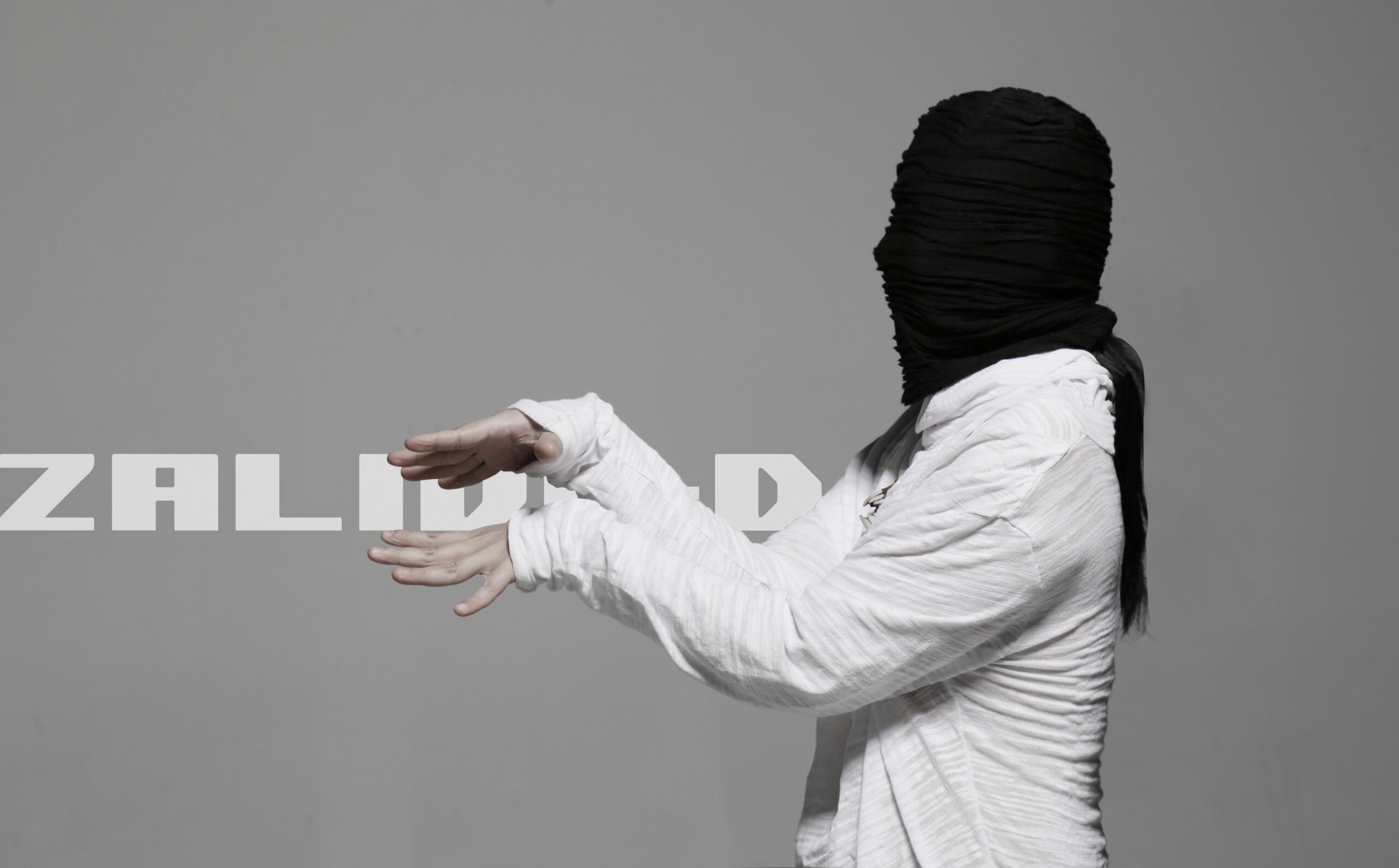Starting in 2003, Zaliva-D has bred the Oriental dark electronic music of unique style with hard work and polishing over a decade. Its iconic timbre and melody isassociated with succesive dark, pale scenes, flogging all mainstream energy.
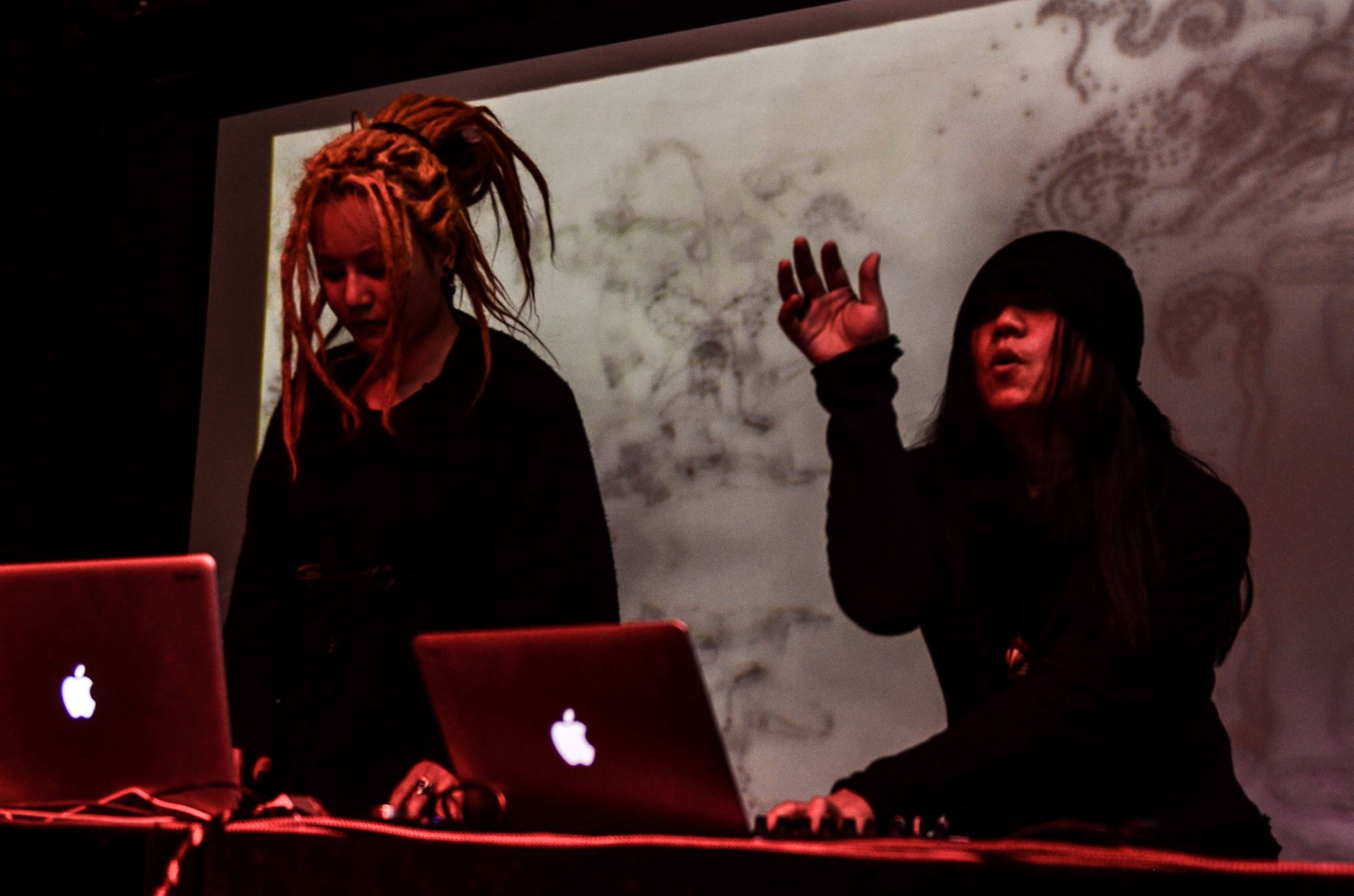

When did you start making music?
Back in 2001 right after I entered college, I built a metal band. As only certain instruments were suitable for metal music, there was not really a thing like sound exploration. One day I heard a piece of EBM music and was hooked on the sounds of drum machines and synthesizers immediately. I searched and listened to a lot of similar music. Every day I checked in the internet to find out what kind of instruments these musicians used. At that time in China, there were very, very few people who knew about electronic music production and synthesizers. I was hungry for knowledges about synthesizers, and searched in the internet every day for relevant information. After I finally saved enough money, I bought my first sampler and my first synthesizer, and started to learn, imitate, and produce simple electronic music.
What was your first synth?
M first Rom player module was Roland JV-1080 and my first Sampler was E-MU E6400Ultra. My first real synthesizer module was Waldorf Micro Q. For me it opened the door to the world of analog Synthesizers.
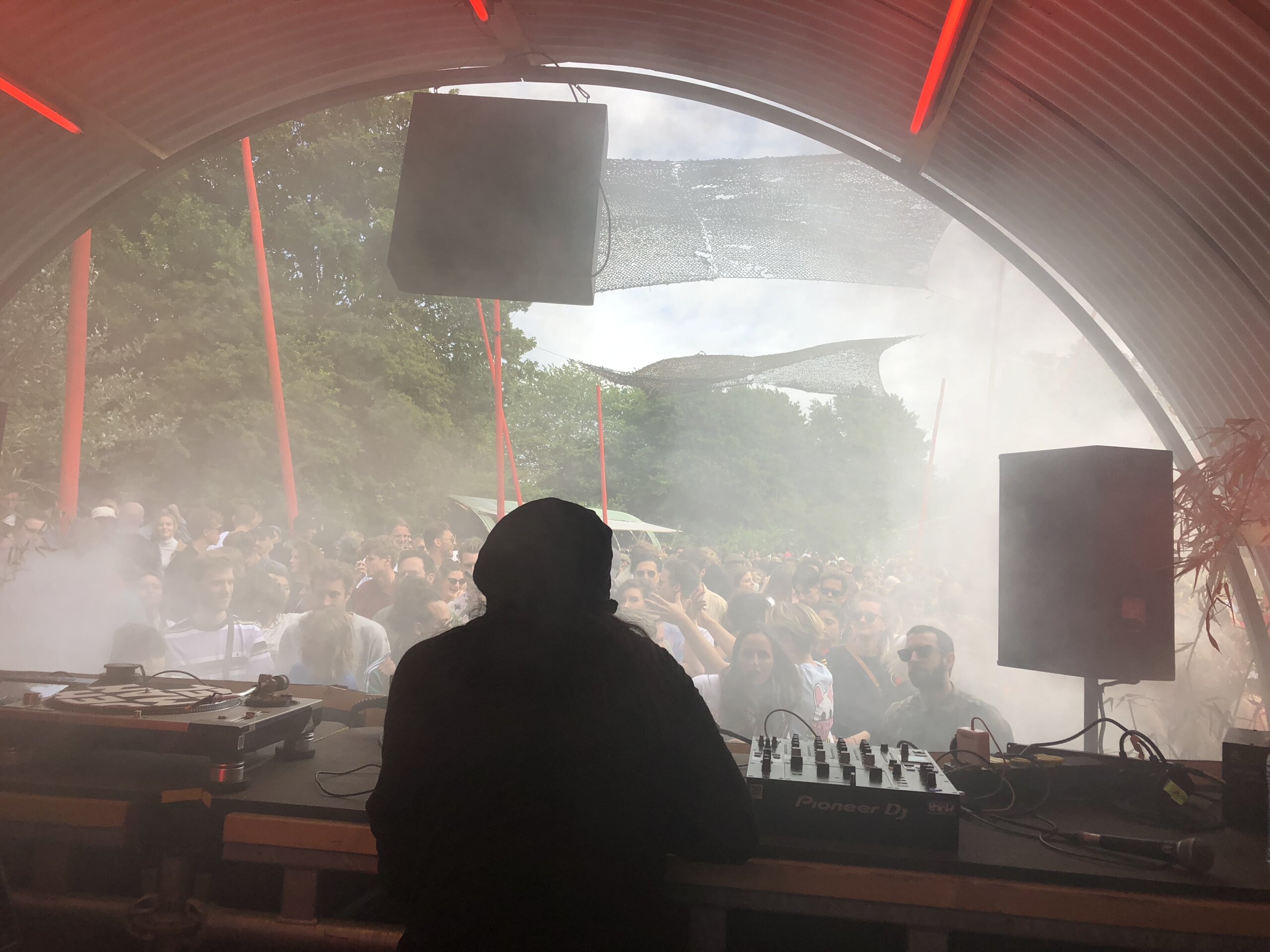
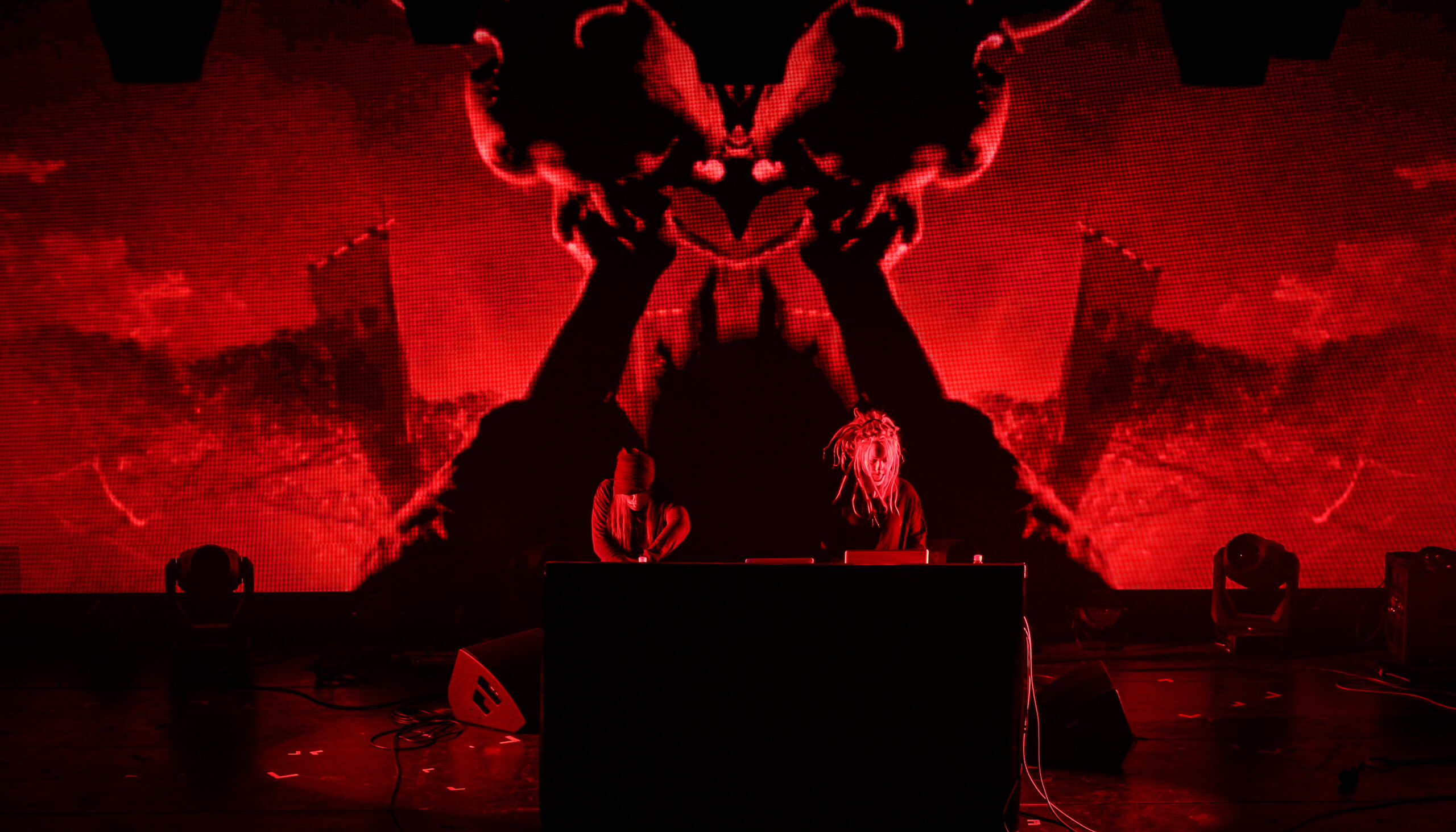
What is the first thing you do
when approaching a new synth?
Delete all the preset, which could mislead me to know the Syn. Plus, I would always want to listen to all the presets, and it would take too much time. If I have enough free time, I will make my own presents one by one and keep them for future production.
What inspires your music?
My inspiration comes from the sounds. After I deleted all the presets, the process of making new presets is creating new music. Almost all the presets that I created will be used in my music. Inspiring and creating come along together.
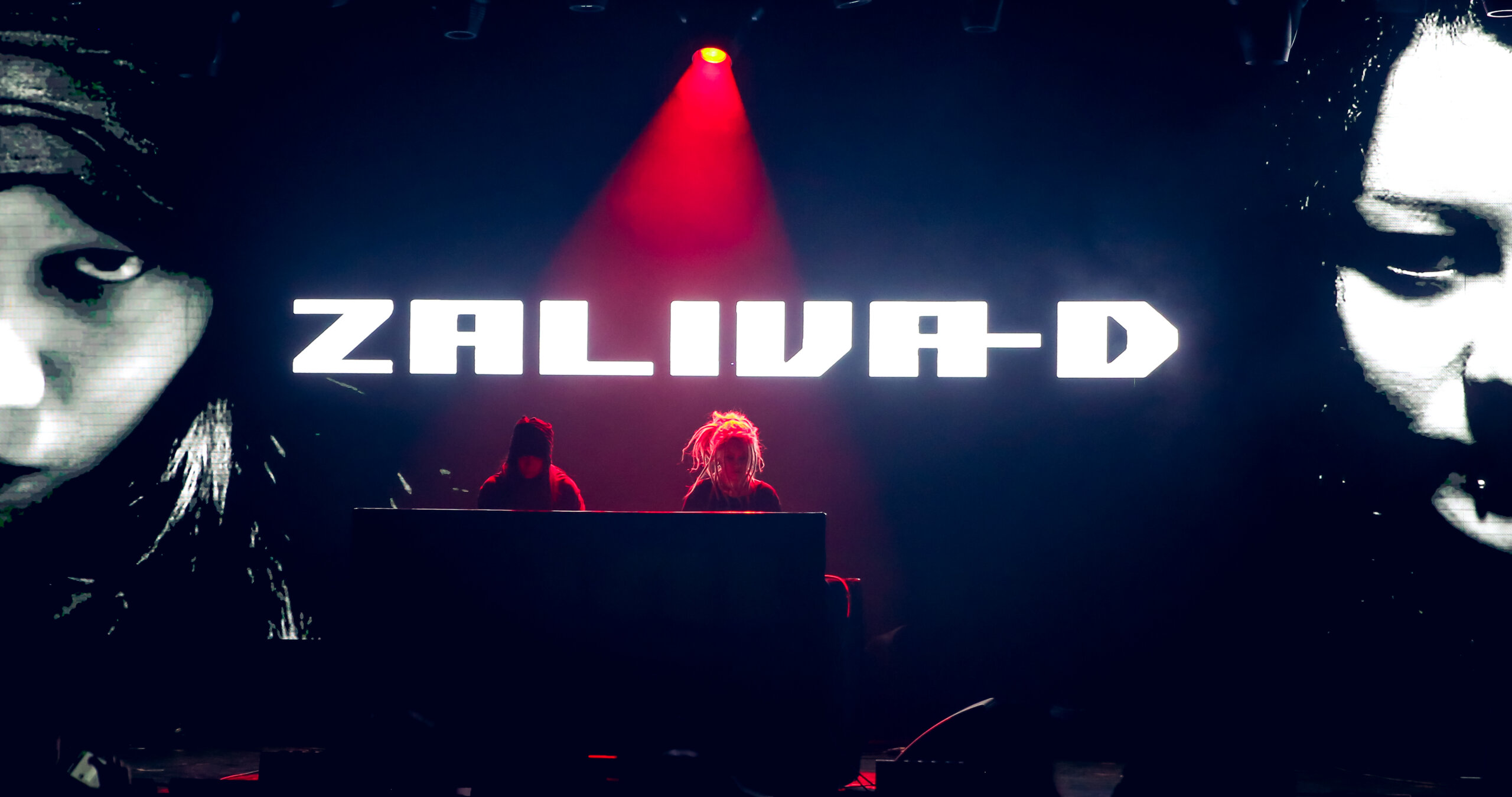
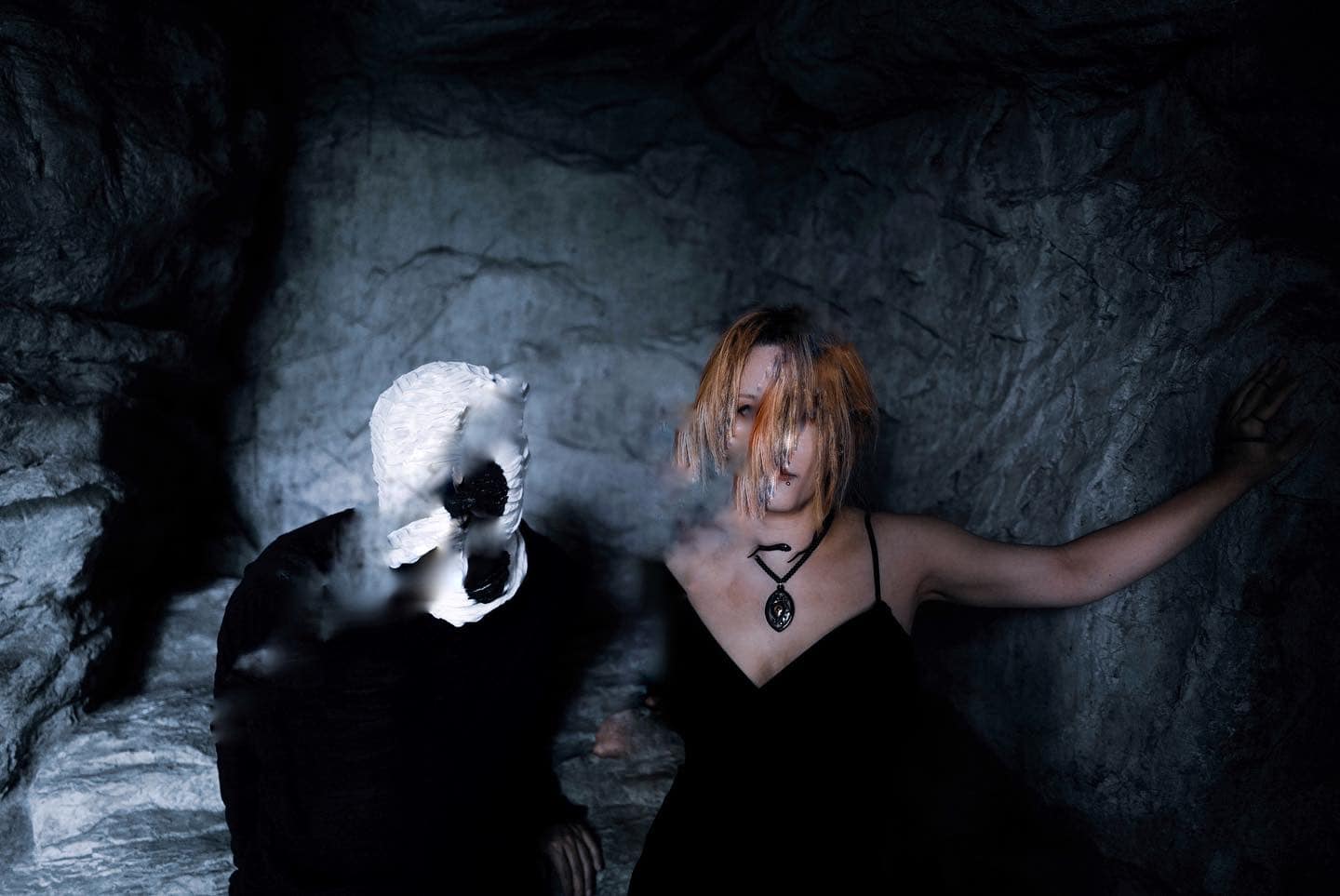
What is your favorite piece of gear in your studio…
that is not a synth that you can’t do without?
Comfortable seats, monitors of right size, speakers that don’t sound harsh, any of them are more important to me than the synth. I can’t continue to work if any of them isn’t right. If the answer had to be an electronic device, it would be the Sherman Filterbank filter, my lord of the nasty sound.
Presets or tweaking yourself?
All self-tuned for almost 10 years, and the Rom player Module has my own sounds.
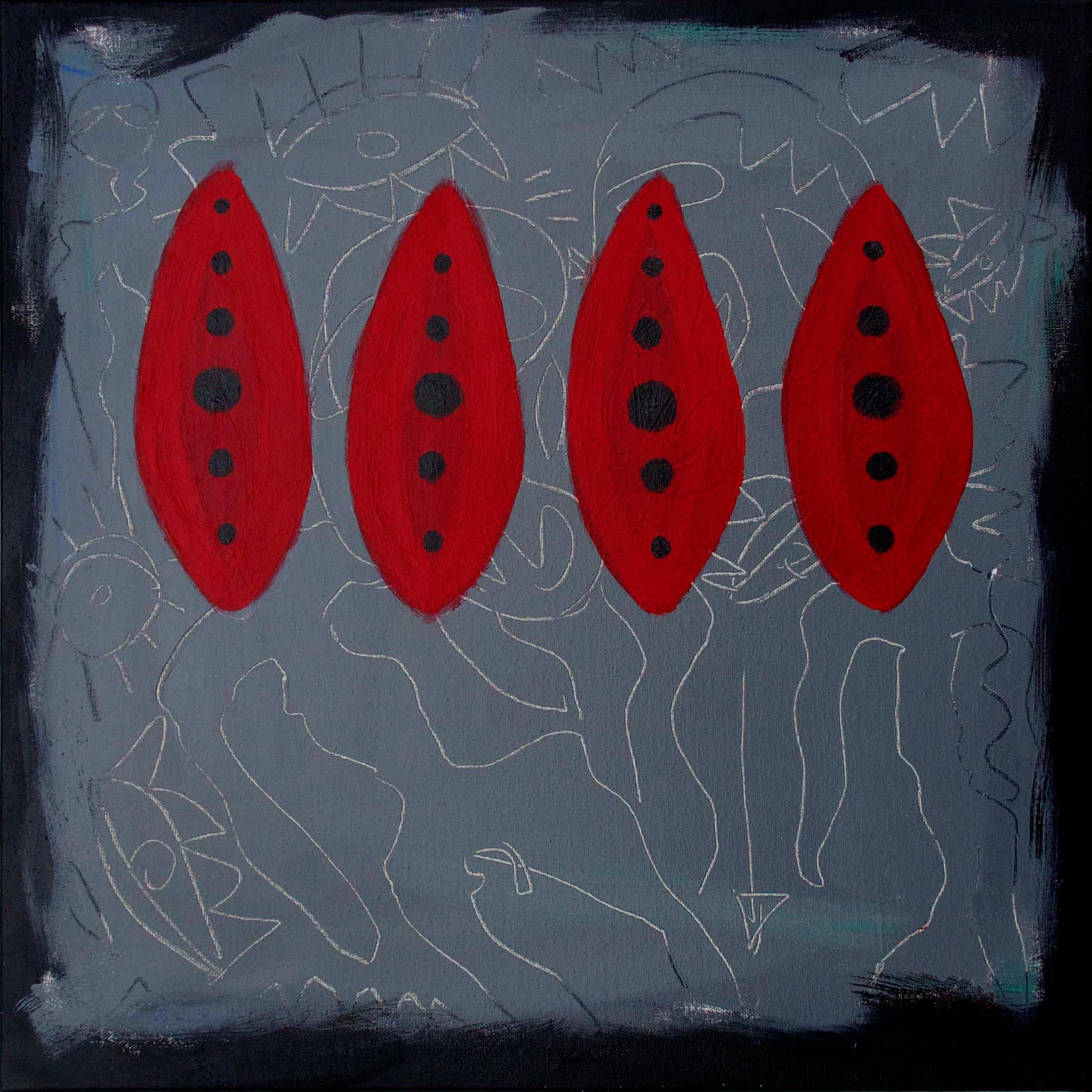
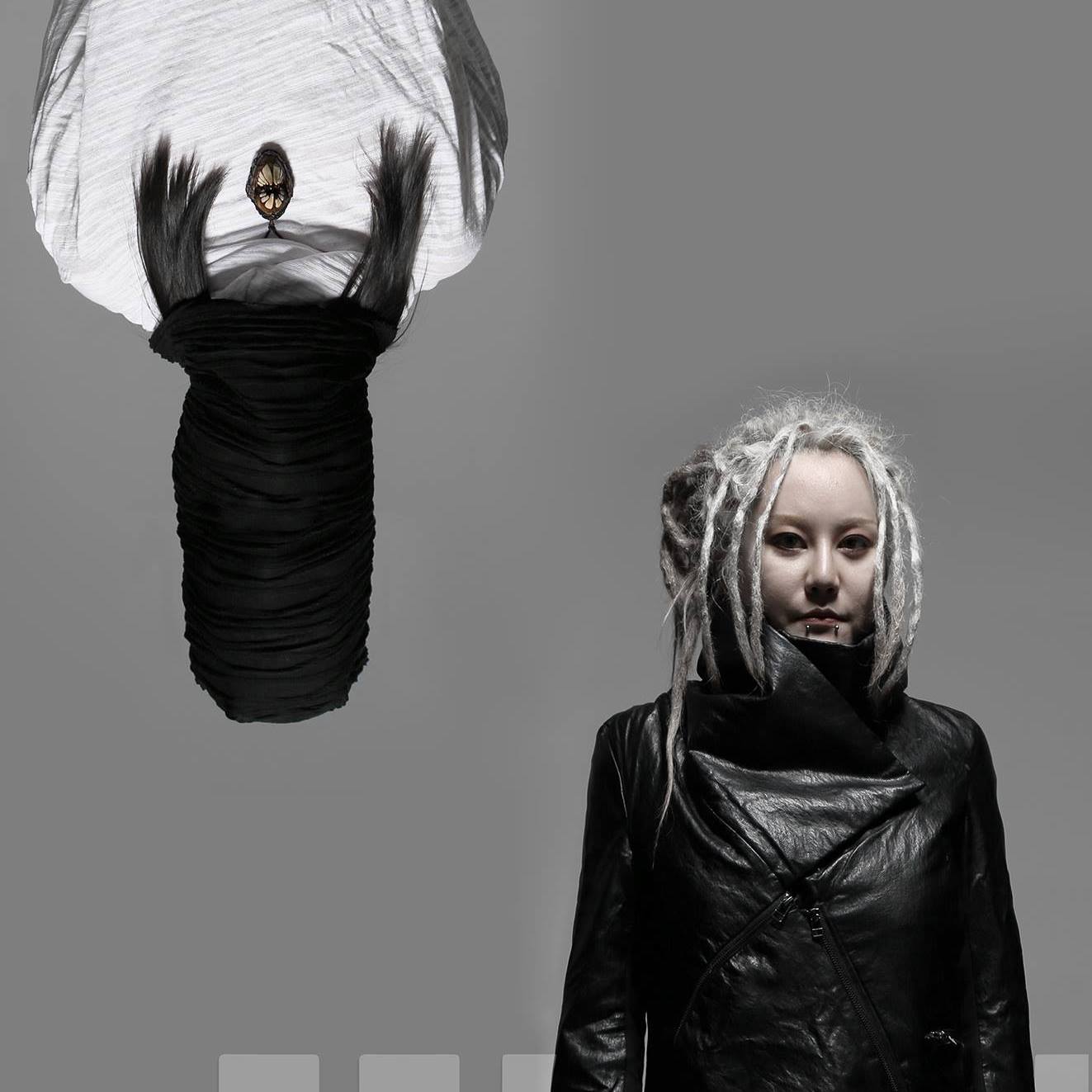
Production process:
in-the-box or played live?
My entire work and creativity has to be computer based, and I only feel comfortable once I’ve recorded the sounds into my DAW, otherwise I get the anxiety of having my inspiration forgotten.
At what time of day or night …
would we meet you most often in your studio?
I used to love making music at night, and it’s true that I tend to be more creative at night, even if the satisfying bits I make at night become boring to listen to during the day. But since I got my two dogs 10 years ago, I haven’t worked at night anymore, and I have to keep my schedule fixed, but I still miss the feeling of creating at night.
How does your live set-up look like?
Simplicity and lightness are my obsessions, and even I wish it could be simpler. I’ll record everything I need to use for a gig as an audio clip, trying to avoid too much computing and keep maximum stability. If in the future a cell phone can satisfy my control, I even dare to do that.
What role do Waldorf synths play in your music?
I’ve owned quite a few waldorf synthesizers. the Microwave XT can be heard on all my albums. I use the Iridium a lot for sound design and some remix work, and for my next album I want to give all the percussion to attack ios and rack attack. However, after the new iOS17, there are some issues with sample distortion. I hope this will be solved soon in the next update.
I’d like to tell a little story to prove the role that waldorf synthesizers have played in my life.
I used to own two XTs when I was younger, I loved the sound of them but I hadn’t gotten to know them deeply enough and then I sold them. Since then I would always have recurring nightmares about wanting them back but not being able to buy them no matter where I went. A few years later I finally got one of them back and used it in depth for a long time, and I am trying to get the other one back. However, I still dream about losing it again and not getting it back multiple times a year, and this nightmare will probably stay with me for the rest of my life, so I think when I have a bigger room in the future, I might just buy any XTs for sale whenever I come across. More will never be too much.
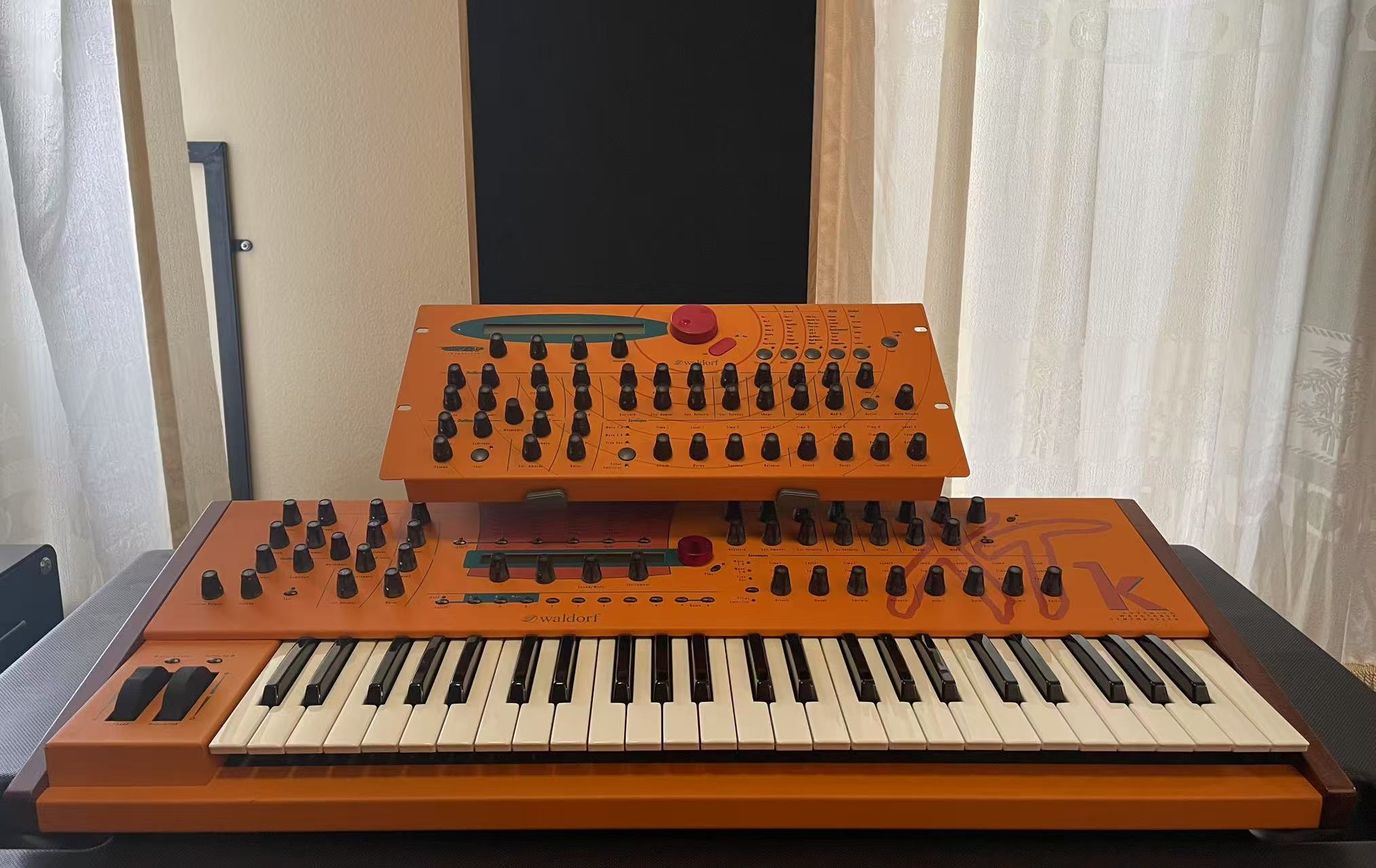
What projects are you currently working on?
I am currently working on a new album from Zaliva-D. Maybe I’ll prepare some new synth presets for it in the next few months.
Follow Zaliva-D:
Starting in 2003, Zaliva-D has bred the Oriental dark electronic music of unique style with hard work and polishing over a decade. Its iconic timbre and melody isassociated with succesive dark, pale scenes, flogging all mainstream energy.

When did you start making music?
Back in 2001 right after I entered college, I built a metal band. As only certain instruments were suitable for metal music, there was not really a thing like sound exploration. One day I heard a piece of EBM music and was hooked on the sounds of drum machines and synthesizers immediately. I searched and listened to a lot of similar music. Every day I checked in the internet to find out what kind of instruments these musicians used. At that time in China, there were very, very few people who knew about electronic music production and synthesizers. I was hungry for knowledges about synthesizers, and searched in the internet every day for relevant information. After I finally saved enough money, I bought my first sampler and my first synthesizer, and started to learn, imitate, and produce simple electronic music.

What was your first synth?
M first Rom player module was Roland JV-1080 and my first Sampler was E-MU E6400Ultra. My first real synthesizer module was Waldorf Micro Q. For me it opened the door to the world of analog Synthesizers.

What is the first thing you do…
when approaching a new synth?
Delete all the preset, which could mislead me to know the Syn. Plus, I would always want to listen to all the presets, and it would take too much time. If I have enough free time, I will make my own presents one by one and keep them for future production.

What inspires your music?
My inspiration comes from the sounds. After I deleted all the presets, the process of making new presets is creating new music. Almost all the presets that I created will be used in my music. Inspiring and creating come along together.

What is your favorite piece of gear in your studio…
that is not a synth that you can’t do without?
Comfortable seats, monitors of right size, speakers that don’t sound harsh, any of them are more important to me than the synth. I can’t continue to work if any of them isn’t right. If the answer had to be an electronic device, it would be the Sherman Filterbank filter, my lord of the nasty sound.

Presets or tweaking yourself?
All self-tuned for almost 10 years, and the Rom player Module has my own sounds.

Production process:
in-the-box or played live?
My entire work and creativity has to be computer based, and I only feel comfortable once I’ve recorded the sounds into my DAW, otherwise I get the anxiety of having my inspiration forgotten.

At what time of day or night…
would we meet you most often in your studio?
I used to love making music at night, and it’s true that I tend to be more creative at night, even if the satisfying bits I make at night become boring to listen to during the day. But since I got my two dogs 10 years ago, I haven’t worked at night anymore, and I have to keep my schedule fixed, but I still miss the feeling of creating at night.
How does your live set-up look like?
Simplicity and lightness are my obsessions, and even I wish it could be simpler. I’ll record everything I need to use for a gig as an audio clip, trying to avoid too much computing and keep maximum stability. If in the future a cell phone can satisfy my control, I even dare to do that.
What role do Waldorf synths play in your music?
I’ve owned quite a few waldorf synthesizers. the Microwave XT can be heard on all my albums. I use the Iridium a lot for sound design and some remix work, and for my next album I want to give all the percussion to attack ios and rack attack. However, after the new iOS17, there are some issues with sample distortion. I hope this will be solved soon in the next update.
I’d like to tell a little story to prove the role that waldorf synthesizers have played in my life.
I used to own two XTs when I was younger, I loved the sound of them but I hadn’t gotten to know them deeply enough and then I sold them. Since then I would always have recurring nightmares about wanting them back but not being able to buy them no matter where I went. A few years later I finally got one of them back and used it in depth for a long time, and I am trying to get the other one back. However, I still dream about losing it again and not getting it back multiple times a year, and this nightmare will probably stay with me for the rest of my life, so I think when I have a bigger room in the future, I might just buy any XTs for sale whenever I come across. More will never be too much.
What projects are you currently working on?
I am currently working on a new album from Zaliva-D. Maybe I’ll prepare some new synth presets for it in the next few months.
Follow Zaliva-D:
Starting in 2003, Zaliva-D has bred the Oriental dark electronic music of unique style with hard work and polishing over a decade. Its iconic timbre and melody isassociated with succesive dark, pale scenes, flogging all mainstream energy.

When did you start making music?
Back in 2001 right after I entered college, I built a metal band. As only certain instruments were suitable for metal music, there was not really a thing like sound exploration. One day I heard a piece of EBM music and was hooked on the sounds of drum machines and synthesizers immediately. I searched and listened to a lot of similar music. Every day I checked in the internet to find out what kind of instruments these musicians used. At that time in China, there were very, very few people who knew about electronic music production and synthesizers. I was hungry for knowledges about synthesizers, and searched in the internet every day for relevant information. After I finally saved enough money, I bought my first sampler and my first synthesizer, and started to learn, imitate, and produce simple electronic music.

What was your first synth?
M first Rom player module was Roland JV-1080 and my first Sampler was E-MU E6400Ultra. My first real synthesizer module was Waldorf Micro Q. For me it opened the door to the world of analog Synthesizers.

What is the first thing you do…
when approaching a new synth?
Delete all the preset, which could mislead me to know the Syn. Plus, I would always want to listen to all the presets, and it would take too much time. If I have enough free time, I will make my own presents one by one and keep them for future production.

What inspires your music?
My inspiration comes from the sounds. After I deleted all the presets, the process of making new presets is creating new music. Almost all the presets that I created will be used in my music. Inspiring and creating come along together.

What is your favorite piece of gear in your studio…
What is your favorite piece of gear in your studio…
that is not a synth that you can’t do without?
Comfortable seats, monitors of right size, speakers that don’t sound harsh, any of them are more important to me than the synth. I can’t continue to work if any of them isn’t right. If the answer had to be an electronic device, it would be the Sherman Filterbank filter, my lord of the nasty sound.

Presets or tweaking yourself?
All self-tuned for almost 10 years, and the Rom player Module has my own sounds.

Production process:
Production process:
in-the-box or played live?
My entire work and creativity has to be computer based, and I only feel comfortable once I’ve recorded the sounds into my DAW, otherwise I get the anxiety of having my inspiration forgotten.

At what time of day or night…
would we meet you most often in your studio?
I used to love making music at night, and it’s true that I tend to be more creative at night, even if the satisfying bits I make at night become boring to listen to during the day. But since I got my two dogs 10 years ago, I haven’t worked at night anymore, and I have to keep my schedule fixed, but I still miss the feeling of creating at night.
How does your live set-up look like?
How does your live set-up look like?
Simplicity and lightness are my obsessions, and even I wish it could be simpler. I’ll record everything I need to use for a gig as an audio clip, trying to avoid too much computing and keep maximum stability. If in the future a cell phone can satisfy my control, I even dare to do that.
What role do Waldorf synths play in your music?
What role do Waldorf synths play in your music?
I’ve owned quite a few waldorf synthesizers. the Microwave XT can be heard on all my albums. I use the Iridium a lot for sound design and some remix work, and for my next album I want to give all the percussion to attack ios and rack attack. However, after the new iOS17, there are some issues with sample distortion. I hope this will be solved soon in the next update.
I’d like to tell a little story to prove the role that waldorf synthesizers have played in my life.
I used to own two XTs when I was younger, I loved the sound of them but I hadn’t gotten to know them deeply enough and then I sold them. Since then I would always have recurring nightmares about wanting them back but not being able to buy them no matter where I went. A few years later I finally got one of them back and used it in depth for a long time, and I am trying to get the other one back. However, I still dream about losing it again and not getting it back multiple times a year, and this nightmare will probably stay with me for the rest of my life, so I think when I have a bigger room in the future, I might just buy any XTs for sale whenever I come across. More will never be too much.
What projects are you currently working on?
I am currently working on a new album from Zaliva-D. Maybe I’ll prepare some new synth presets for it in the next few months.

